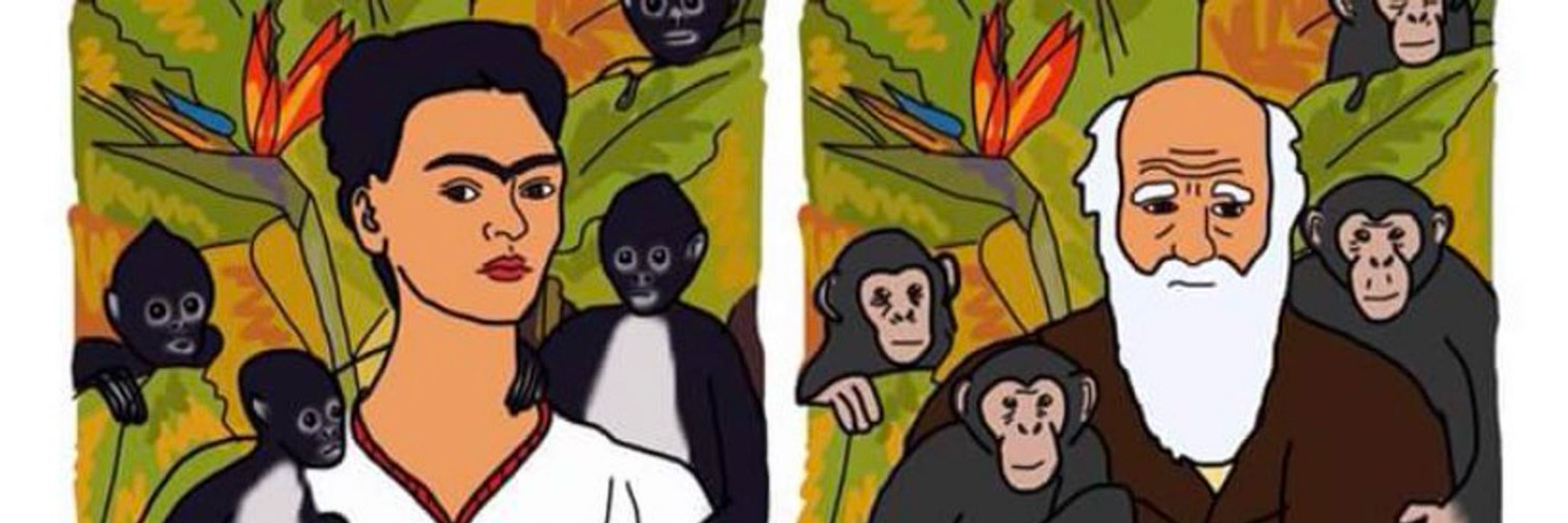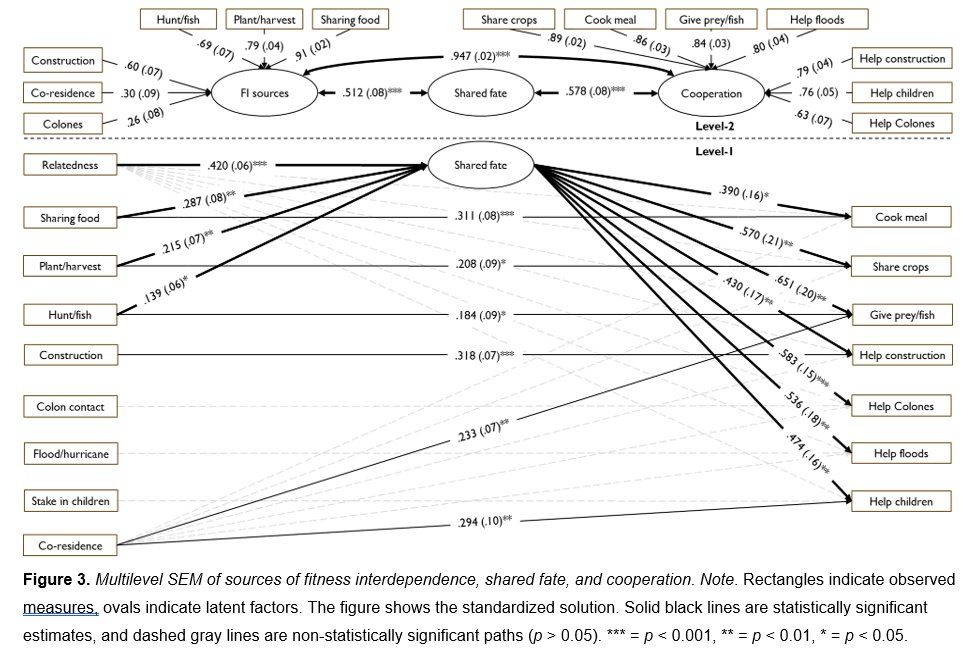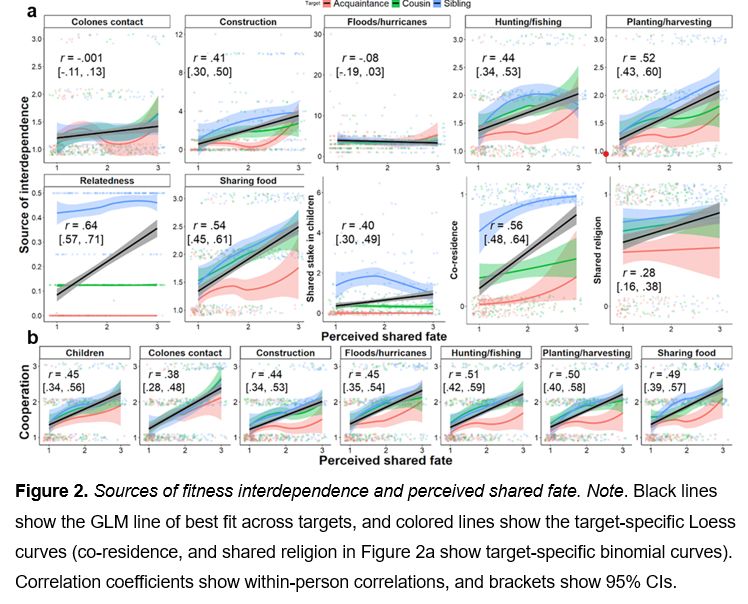
Diego Guevara Beltran
@psycheddiego.bsky.social
Social psych + evo anthropology: Cooperation, interdependence, emotion. Assistant Professor, Department of Psychology, University of Arizona.
http://psycheddiego.mystrikingly.com/
http://psycheddiego.mystrikingly.com/
Finally, we show in a follow-up study with a subset of participants (N = 36, Obs. = 108) that shared fate is associated with helping more often in the past two weeks, and actual helping behavior (i.e., forgoing money to purchase a pound of rice for targets) (7/10).

July 15, 2025 at 4:42 PM
Finally, we show in a follow-up study with a subset of participants (N = 36, Obs. = 108) that shared fate is associated with helping more often in the past two weeks, and actual helping behavior (i.e., forgoing money to purchase a pound of rice for targets) (7/10).
However, at the within-person level, relatedness, sharing food (i.e., eating together), and shared subsistence activities (i.e., planting/harvesting, hunting/fishing) emerged as the most diagnostic cues of positive shared fate, and shared fate was associated with helping (5/10).

July 15, 2025 at 4:42 PM
However, at the within-person level, relatedness, sharing food (i.e., eating together), and shared subsistence activities (i.e., planting/harvesting, hunting/fishing) emerged as the most diagnostic cues of positive shared fate, and shared fate was associated with helping (5/10).
In bivariate correlations, we find that 8/10 sources of interdependence were correlated with higher shared fate, and shared fate correlated with more helping across 7 fitness-relevant domains (e.g., helping target's children, sharing crops) (4/10).

July 15, 2025 at 4:42 PM
In bivariate correlations, we find that 8/10 sources of interdependence were correlated with higher shared fate, and shared fate correlated with more helping across 7 fitness-relevant domains (e.g., helping target's children, sharing crops) (4/10).
But we also identified a potential psychological mediator of this effect: Predictable needs give rise to higher attributions of responsibility (believing the person in need is at fault and responsible for their need)

December 4, 2024 at 5:24 PM
But we also identified a potential psychological mediator of this effect: Predictable needs give rise to higher attributions of responsibility (believing the person in need is at fault and responsible for their need)
We not only replicated the finding that people expect repayment as the perceived predictability of needs increases

December 4, 2024 at 5:24 PM
We not only replicated the finding that people expect repayment as the perceived predictability of needs increases
We (Denise Mercado @jessicadayers.bsky.social Andrew Van Horn @joealcock.bsky.social Peter Todd Lee Cronk & @athenaaktipis.bsky.social) replicated our findings in a nationally representative sample of US adults.
www.sciencedirect.com/science/arti...
www.sciencedirect.com/science/arti...

December 4, 2024 at 5:24 PM
We (Denise Mercado @jessicadayers.bsky.social Andrew Van Horn @joealcock.bsky.social Peter Todd Lee Cronk & @athenaaktipis.bsky.social) replicated our findings in a nationally representative sample of US adults.
www.sciencedirect.com/science/arti...
www.sciencedirect.com/science/arti...
Ranchers rely more on “need-based transfers” (help w/o repayment expectation) during emergencies and “debt-based transfers” (reciprocity expected) for routine tasks. This mirrors patterns of risk-pooling across human societies.

December 4, 2024 at 5:24 PM
Ranchers rely more on “need-based transfers” (help w/o repayment expectation) during emergencies and “debt-based transfers” (reciprocity expected) for routine tasks. This mirrors patterns of risk-pooling across human societies.
Ranchers in the American Southwest demonstrate unique and universal patterns of mutual aid. When needs arise unpredictably (e.g., injury, drought), help is given without expecting repayment. Predictable tasks (like branding)? Repayment is expected.

December 4, 2024 at 5:24 PM
Ranchers in the American Southwest demonstrate unique and universal patterns of mutual aid. When needs arise unpredictably (e.g., injury, drought), help is given without expecting repayment. Predictable tasks (like branding)? Repayment is expected.

